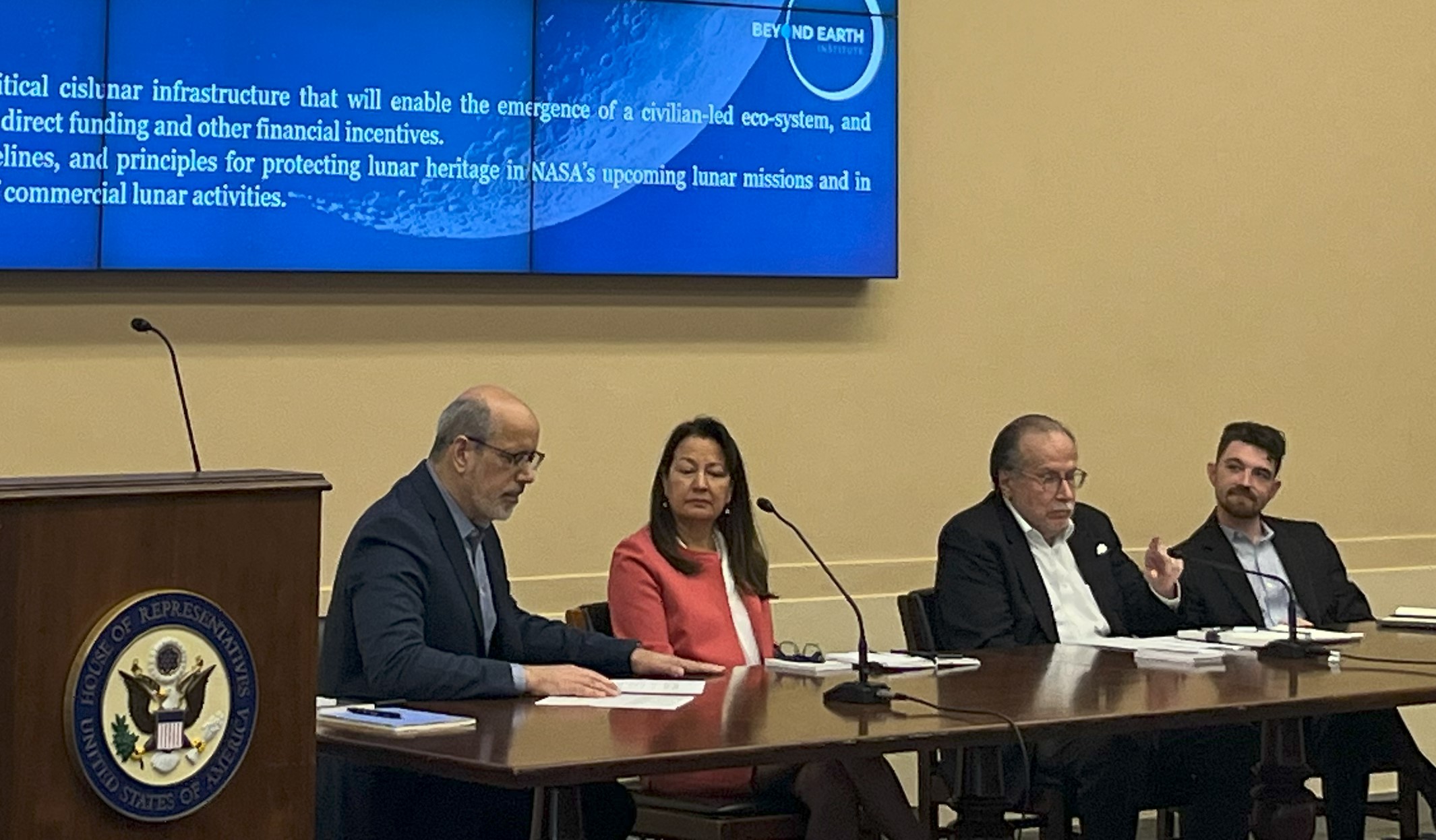
July 1st, 2023 |

On June 28th, the Beyond Earth Institute appeared on Capitol Hill in Washington, DC, to brief an enthusiastic group of congressional staffers on several key issues of particular concern to the organization. The briefing was held in the hearing room of the House Space and Aeronautics Subcommittee and was requested by the Space Advocates, a congressional non-partisan, staff-led group that promotes awareness of space events and issues. Beyond Earth President, Steve Wolfe, moderated the panel that included Courtney Stadd, BE Executive Vice President, Cody Knipfer, BE Policy Analyst, and Michelle Hanlon, CEO and Founder of For All Moonkind and BE Advisor.
The event reflected the BE mission with the title, "Building a 21st Century Policy Framework to Enable a Space Migration Future." The one-page handout distributed at the event can be found at this link.
Steve Wolfe opened the program with a declaration that, "Those nations that dominate the development of the cislunar domain, will dominate the global economy for the remainder of the 21st Century."
Some 20-25 staffers attended to briefing which covered critical topics including new “authorization and continuing supervision” regimes being considered for U.S. compliance with Article VI of the Outer Space Treaty; creating a “carve out” that protects the X-Band spectrum used by commercial satellite; an overview of NASA's Commercial LEO Destination (CLD) program and why it is so important to ensure its success; the potential of the emerging cislunar economy that is sustainable and respectful of heritage sites.
In his remarks, Courtney Stadd said that "whatever Article VI compliance regime is instituted and how the responsibilities are divided among government agencies, they must be transparent, minimally burdensome on the space industry, and designed to facilitate – not inhibit – the development of new markets and activities in space."
Cody Knipfer provided a comprehensive overview of the CLD program, stressing that this commercial orbital capability will be critical to continue the important work of the International Space Station once it is retired by the end of the decade. "It's critical," he added, "that we do not allow a gap between the retirement of the ISS and the operation of the CLD commercial facilities."
Michelle Hanlon placed the discussion in the context of international space law, and its current limitation. As she put it, international space law, "contradicts itself several times in the same document." She discussed the importance of multilateral agreements such as the Artemis Accords to fill the gaps. She remains concerned about protecting heritage such as the Apollo landing sites on the Moon. "These have such historic importance and must be preserved," she insisted.
The Hill staff were clearly engaged throughout the hour-and-a-half briefing, asking important questions of the panelists. The Beyond Earth team was very satisfied that they had made an impression on the gathering.